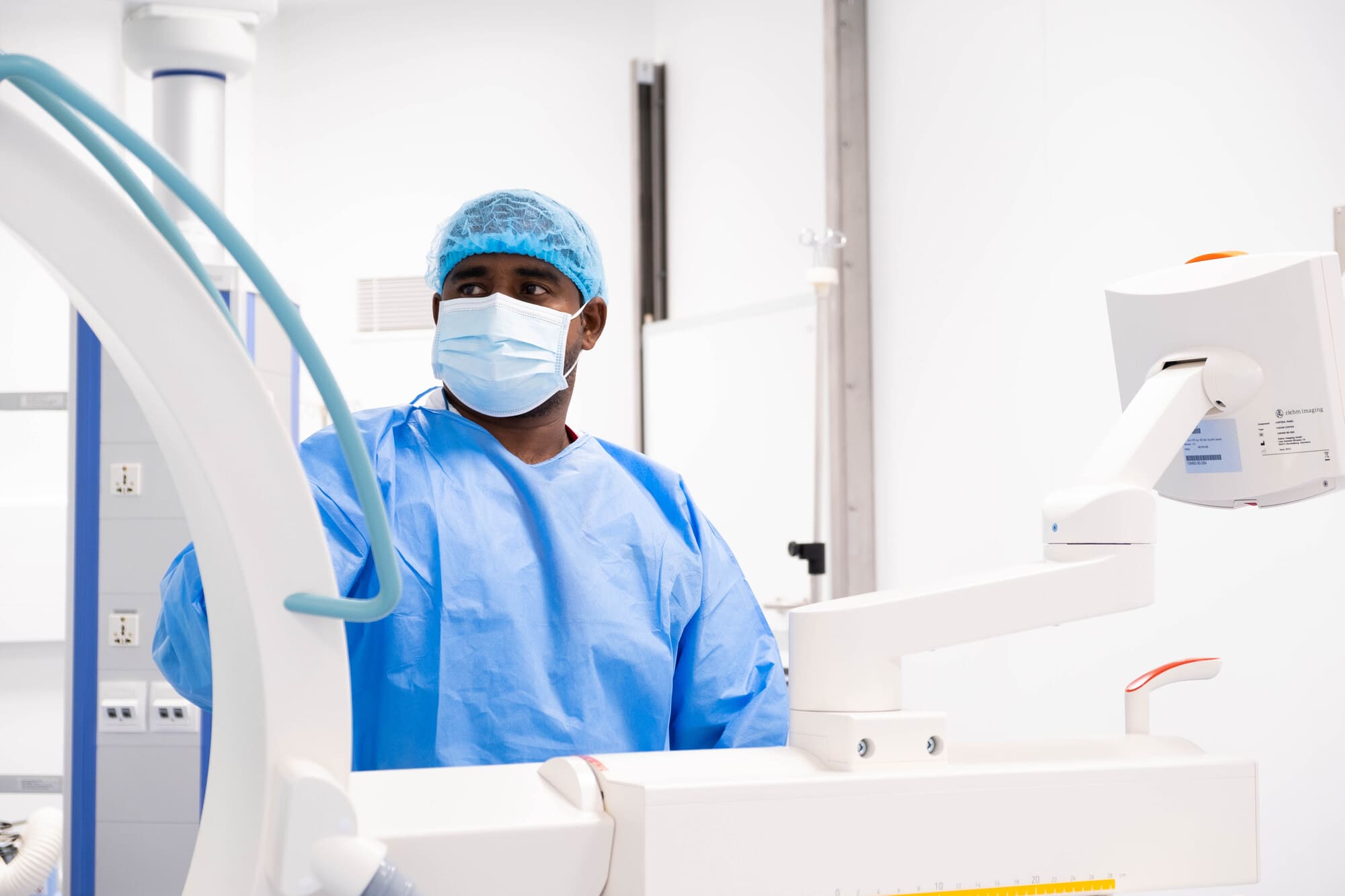Pain management
A surgery, whether minor or major, is always accompanied by some pain, and discomfort. Thus, anaesthesia is a common fixture in health care settings to ease this discomfort and contribute to a caring and soothing overall patient experience.
What is the role of an Anaesthetists?
Anaesthetists are specialist doctors who are responsible for providing anaesthesia to patients for operations and procedures. In addition, anaesthetists are skilled in pain management and intensive care. Our work involves meeting with the patient and surgical team to plan what sort of anaesthetic is most appropriate for the type of surgery being performed.


Why does the patient need a pre-assessment anaesthesia consultation?
A preoperative anaesthetic evaluation helps identify patients who may be at high risk of possible complications.
The early identification of these patients is necessary in order to have time to understand pre-existing medical conditions and plan for risk reduction. It is also an opportunity to inform patients about planned anaesthesia, advise them on pre-operative fasting, how to manage and take routine medications, prescribe routine blood tests or other specific tests as needed, and explain what will happen on the day of surgery.
Preparing patients for the operating room in this way means that a patient can be admitted on the day of surgery.
What are the different types of anaesthesia?
A local anaesthetic means a local anaesthetic drug is injected through the skin to numb an area and cause loss of feeling to pain in that area.
Conscious sedation is when a sedative drug is injected into the bloodstream causing a semiconscious state. This will help to reduce anxiety and pain and May result in some amnesia.
A regional anaesthetic means that a local anaesthetic drug is injected into the area of the nerves causing a loss of the feeling of pain and movement. This is temporary and the feeling returns within a few hours.
A general anaesthetic means that the medication is either injected into the bloodstream or breathed into the lungs and results in a total unconscious state.

How will my pain be managed?
Pain management is important following an operation. For moderate pain medication will be provided by mouth with tablets or pain syrup or rectal suppositories.
For severe pain strong opioids like morphine will be given either into the bloodstream or as an injection into the buttock or upper arm.
Discharge pain medication will include oral medication for adults and syrup for children.
These should be taken as prescribed by the doctor.
Life | Viva
Forbach
Phone
+230 260 8182
Address
Life I Viva
Healthscape
Forbach, Mauritius
Life | Viva
Tamarin
Phone
Address
Life I Viva
Cap Tamarin
Tamarin, Mauritius
Online booking
Well-being &
Alternative Care
Diagnostic
& Analysis
Medical, Surgery
& Maternity
Re-education &
Rehabilitation
Home &
Long-term Care
Contact us
Life | Viva
Forbach
Phone
+230 260 8182
Address
Life I Viva
Healthscape
Forbach, Mauritius
Life | Viva
Tamarin
Phone
Address
Life I Viva
Cap Tamarin
Tamarin, Mauritius



